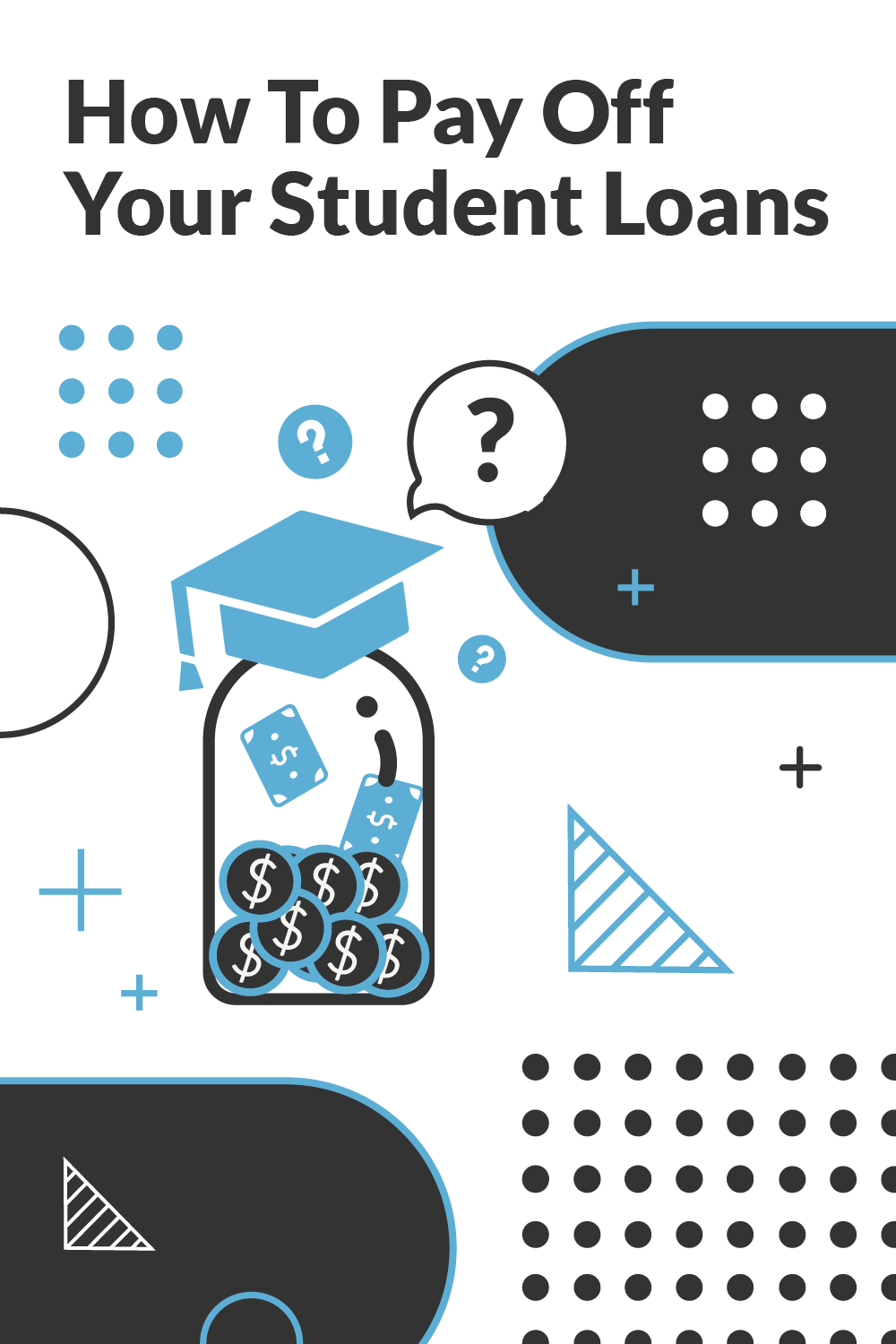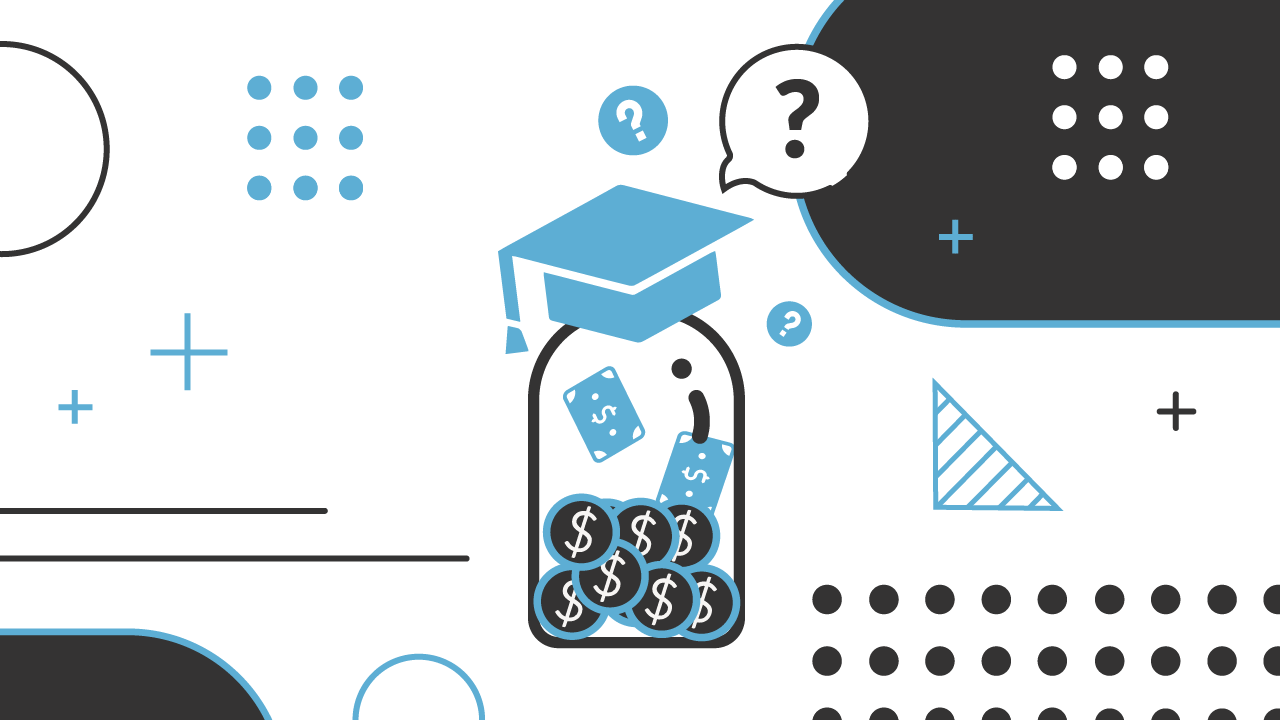
Imagine being free from the weight of student loans. Inspiring, isn't it?
Across the United States, countless individuals have worked hard to pay off their student loans. In fact, 20% of all Americans have reported paying off their student loans.
But we know that student loans can cripple your life. If you don't take action on them, you'll never get free. But how are people working towards paying off their loans?
Today we share 16 stories about others who have got rid of their student loan debt. Here's what they did, how much they paid off, and hopefully you can glean some inspiration from them.
Now, let's dive into people doing awesome things!
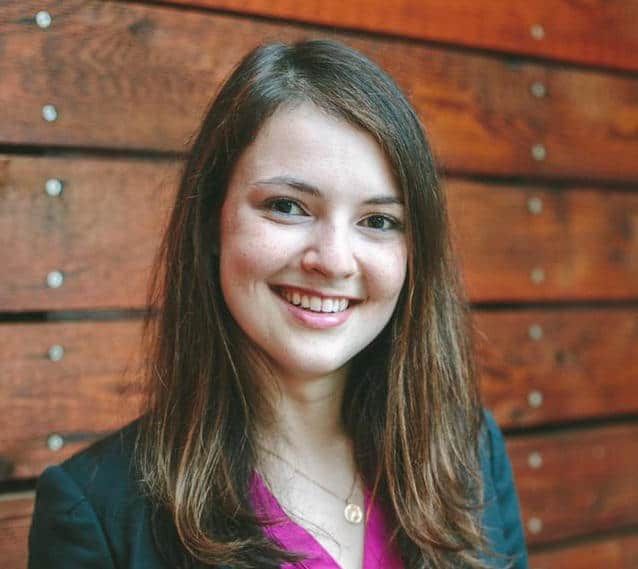
I paid off $28,000 worth of student loans in 3 years, while earning around $30,000 a year.
The first year I worked on cutting my expenses as much as possible. I was only making $28,000 at the time and my rent was pretty pricey. I worked on sticking to a budget, finding coupons and freebies and putting any extra money toward my loans.
The second year I received a small raise, lowered my cost of living by moving to a new city, and I put any money I saved toward my loans. This way I was able to pay more than twice the minimum payment toward my student loans.
The third year, I moved in with my then-boyfriend and a mutual friend. By having roommates to split rent, utilities, internet and more with, I was able to put one of my paychecks every month toward my loans. By November 2014, I was debt free.
Learn more about Zina and her story at Conscious Coins.

I graduated from James Madison University in 2010. I was pretty lucky in that I came away with a four year degree (online media design and management) that was sure to land me a job (which I found a paid internship before ever even leaving school) and an education valued at more than $40k+ with only $10,000 in student loan debt.
I had several scholarships and government assisted funding for my education so I didn't have to take out a ton of loans. I actually still had some of my loan money left over after I graduated, probably close to $3,000, that I saved and had as an emergency fund.
Within 6 months of graduating I was hired on with that company as a full-time salaried employee and it was time to start paying back student loans. I had loans with several different lenders so I decided to consolidate my three loans into a single one. I was making a decent salary and I'm super frugal, meaning I don't buy a lot of "stuff" (clothes, accessories, electronics, junk) so I was able to afford to pay $300 a month on the student loan and had it paid off in less than 4 years. I was paying well over the minimum, so most of the payment was going toward the principal, allowing me to pay it off quickly while only paying a small amount of interest.
Heather Phillips is currently working on Tiller, a personal finance tool that pulls your data into a Google Spreadsheet and updates it daily. Free for students at Tillerhq.com.

I worked full-time all throughout my undergraduate and graduate degrees, and still managed to have student loans. I’m going to blame it on the fact that I had to move out when I was 17/18 and I had to pay for myself to live, but honestly, I wasted a lot of the money I made as well. I spent tons of money on clothes and food.
The total amount of student loans that I accumulated was around $40,000 after I received both my undergraduate and graduate degrees.
I paid off my loans through a combination of cutting expenses and earning more money. I created a budget, wrote down everything I was spending each month, and cut where I could. But it still wasn't enough to make a dent in my loans.
The month I paid off my loans I made $11,000 in extra income. Not everyone will start there, and I started with $0 extra per month, but I made building an extra income a huge part of my plan.
The point of all of the above is to help you pay off your student loans. However, you can always go a little bit further and pay off your student loans more quickly. The key to this is that you will need to pay more than the minimum each month for you to speed up your student loan repayment plan process.
If you want to learn more about Michelle's story, find her at Making Sense of Cents.
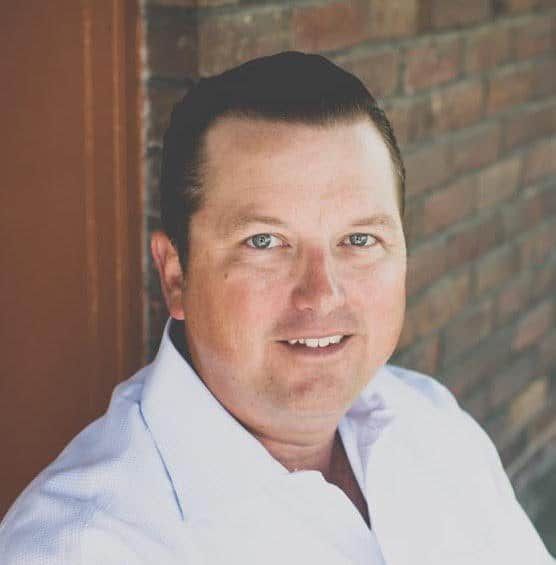
My story of repaying ‘our’ student loans is a bit on the comical side. I played baseball for Xavier University and received a 50% scholarship, my parents paid some of the rest, but I left school with a student loan of roughly $17,000.
A couple of years post graduation I got engaged, and started making some decent money. I made it my priority to be debt free going into marriage, and had roughly 18 months to make it happen. Due to various wedding expenses I couldn’t get it done and I vividly remember the week of our wedding looking at the balance and it was just over $1,400. I had obviously made a huge dent in it, but unfortunately didn’t finish the job.
When we got married, my wife was in graduate school to become a Speech Pathologist at Rush University in Chicago. When she completed school, it came to my realization that she had over $50,000 in student loans. We ended up meeting with an accountant when she asked him, “Do you think it would be a good idea to consolidate our student loans?”
We ended up doing so, and yep, even though I was only responsible for 3% of the student loan debt, for the next bunch of years while we paid it off, it was known as ‘our’ student loans. I never did have the heart to call her out on that designation.
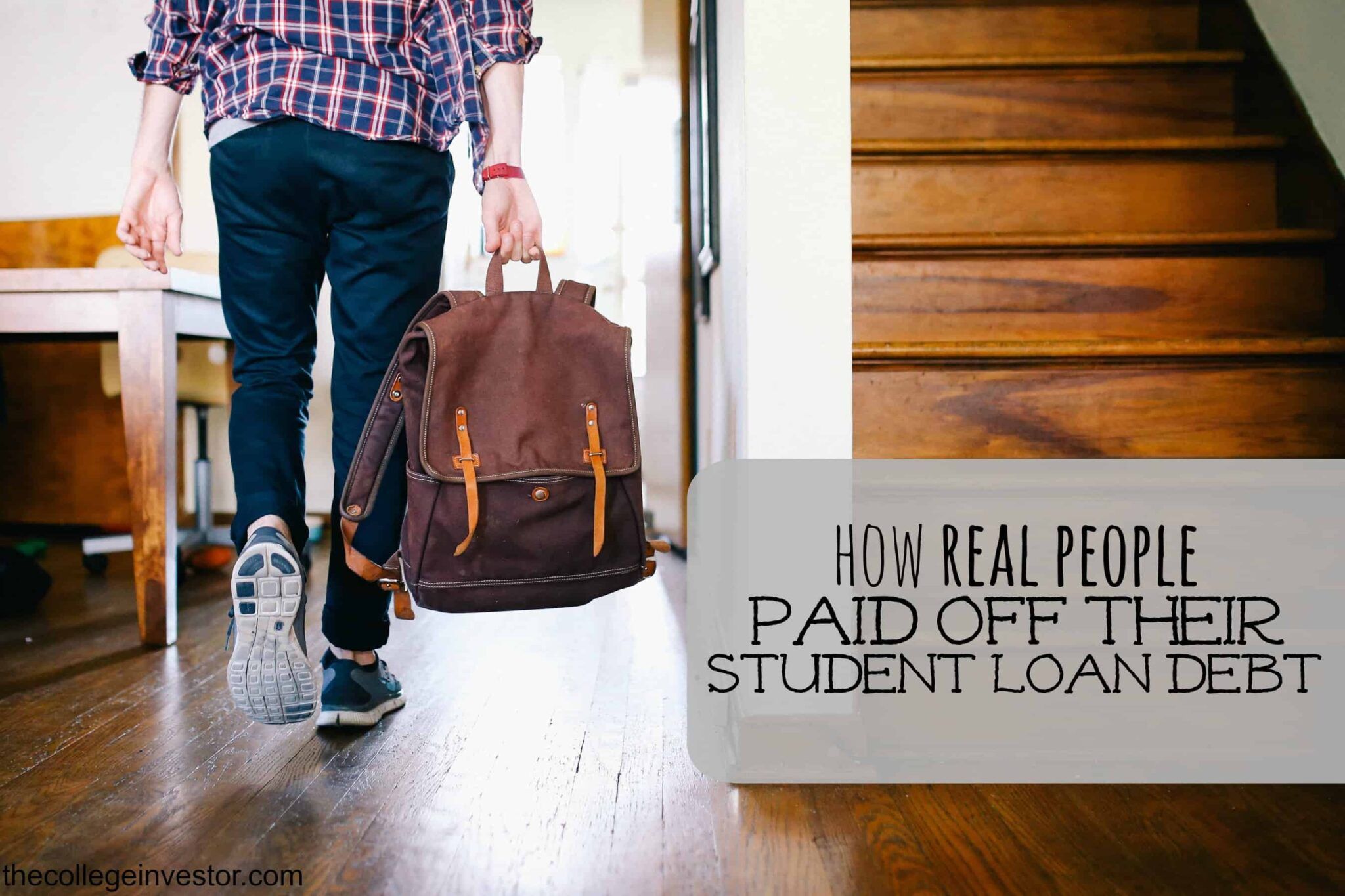
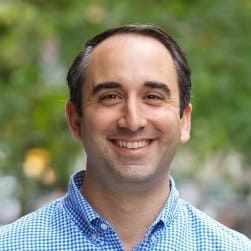
When I decided in 2007 to attend the Tuck School of Business at Dartmouth, I knew I would need to finance the majority of my MBA with student loans. Here’s what I’ve learned since then that enabled me to pay off my loans in a little under six years.
To set the scene: I took out over $150K in loans, and when all was said and done, I paid over $180K, including interest, over 6 years. Back when I started school, the interest rates on my student loans ranged from about 6.5% (a subsidized loan that my school offered up to a limit) to 8.5% (the majority of my federal loans). I was lucky enough to not have student loan debt from undergrad, or any other installment debt like auto loans, so this was the only debt I was paying off. When I got the final “tab” after graduating, reality set in: I had a 6-figure bill that was accruing interest… It was time to get to work.
Here’s how I managed my student loan debt:
When I was leaving school, I was moving to a new city and a new apartment. One of the first things I had to do was understand my anticipated student loan monthly payments (after grace period) to make sure that my budget could withstand my rent, parking, daily expenses, and loan payment. I logged in to the two services that I made my student loan payments to and found how much I’d owe each month. Balancing student loans and living expenses in major cities like New York and San Francisco can be difficult, but there is no quicker way to paint yourself into a financial corner than to overextend yourself with your living expenses.
Right before my grace period ended, I idiot-proofed my payments. That is to say, I set up my student loan payments to automatically debit from my checking account so that I would never miss a payment. Being in debt was tough enough, so the last thing I wanted was to get hit with a fee or hurt my credit. It’s worth noting that many lenders, like CommonBond, will offer a 0.25% rate reduction by setting up autopay from your checking account.
For my first six months paying student loans, I paid the exact amount due while I got my bearings on my new job, city, income, and expenses. Once I confirmed that I was in a good place financially, I slightly increased my payments such that I was overpaying each month and therefore paying down my loan principal quicker. Even if the extra payment wasn’t a ton of money (ranging from $50 to $200 per month over the years), I thought these payments could add up to thousands of dollars over time (which they did).
I was not in an industry where bonuses were astronomical, but I did get some year-end bonuses in my first job and later received restricted stock at future companies. I put as much as humanly possible from these proceeds against my student loans. By prepaying chunks of my student loans 1 to 2 times per year, my outstanding debt really began to come down, and the light at the end of the tunnel began to peek through.
All of the above tactics got me to the point where I paid off my debt in a little under 6 years, or 4 years ahead of my 10-year term.
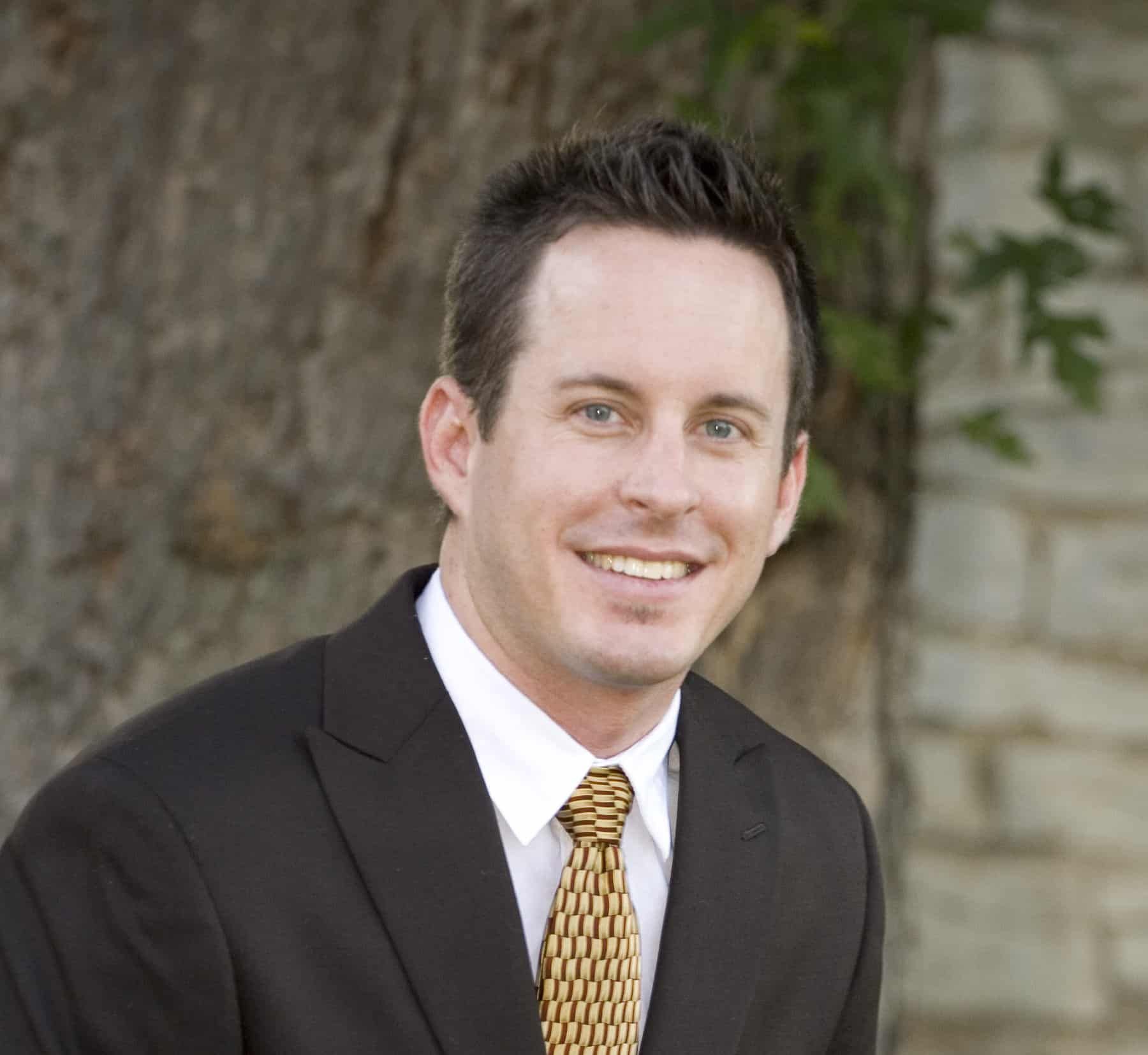
I just finished repaying $20,000 in Federal Student Loan debt. Due to a 2008 layoff, subsequent under-employment and mortgage/medical debt obligations, I had to put the loan on a graduated repayment plan in order to remain current. I don’t recall the original payment, but on the graduated plan it started around $80 per month and ended up around $120 per month before I paid it off early
I was finally able to pay it off after about 10 years of payments. Two years ago I was able to drastically reduce my living expenses by renting out my home and moving in with my widowed mother in order to to aggressively pay down the debt.
Learn more about Thomas at Clear Point Credit Counseling Solutions.
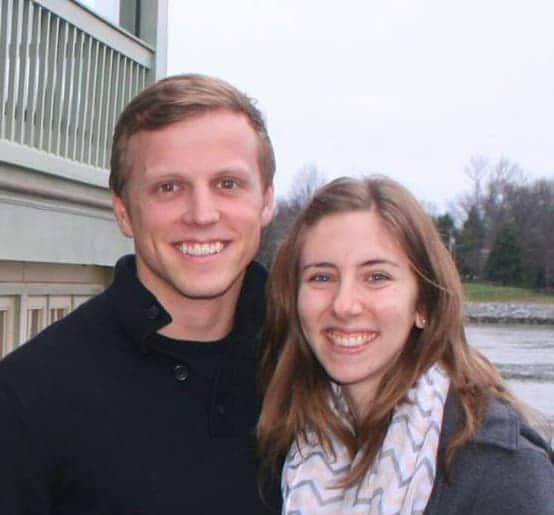
Lauren and I paid off $27,000 in just over 2 years. Our goal was to pay off our undergrad student loans by the time she finished her master's degree.
Our plan was fairly simple:
1) we designated an amount to pay in addition to our minimum monthly payment ($200 in our case)
2) we committed our tax return & "extra pay checks" to our loan
3) I worked to generate additional income through freelance work on nights & weekends.
We tracked our progress on the loan through an amortized Excel spreadsheet and managed our budget with YNAB financial software (stands for You Need A Budget). The philosophy behind YNAB combined with the support of the YNAB online community (training, tutorials, forums) was a huge aspect of our success. Our encouragement to others is to make a plan and stick to it. It's simple, but that's really the secret.

I was working at Hewlett-Packard back in the day when new PC's were a couple thousand dollars. My dad really wanted the latest model HP PC and the retail price just about equaled my student loan debt. In addition, the company had a policy of selling internally to employees at a discount plus financing at zero interest.
So my Dad gave me the cash in exchange for the PC, and then I used that cash to instantly pay off the student loans. My debt was instantly reduced by the employee discount, and then the company pulled a small amount each month interest free out of my pay so I hardly ever missed it. Presto - student loan debt was instantly gone.
You can learn more about Todd at FinancialMentor.com.

I admit that I was slow to pay off my loans. It took me 10 years altogether to get debt free. But when I finally set my mind to it, I paid off $46,500 of student loan debt in 2 years and 3 months.
I did it by facing the facts, setting financial goals and a budget, boosting my income by taking on side jobs, and staying motivated.
I had $25,866.26 left in July 2014, and I made a goal to pay off this amount in 10 months. If you are looking at the numbers that’s $2,586 a month. And that doesn’t even calculate interest, so it was more like $2,600 per month.
The official day I paid off the last of my student loans was June 11th, 2015. I didn’t make the 10 month goal I set forth to complete, but it didn’t matter in the end. For a little over 2 years, I made paying off my student loans the focus in my financial life. When I made that last payment I could not feel happier.

My wife and I worked to pay off her over $80,000 of student loan debt in less than three years. We lived a frugal lifestyle, earned extra income and put almost everything above our basic expenses toward the debt pay down.
This is the key and, while it seems obvious on the surface, it takes a lot of determination to make it happen. We paid a ton of money towards debt every month. In the beginning, minimum payments were over $700 a month and we still sent extra money in. During the rough times we only made the minimum payments, but during some of our best debt pay off months we paid off over $10,000 in one month.
You can learn more about Lance at MoneyManifesto.com.
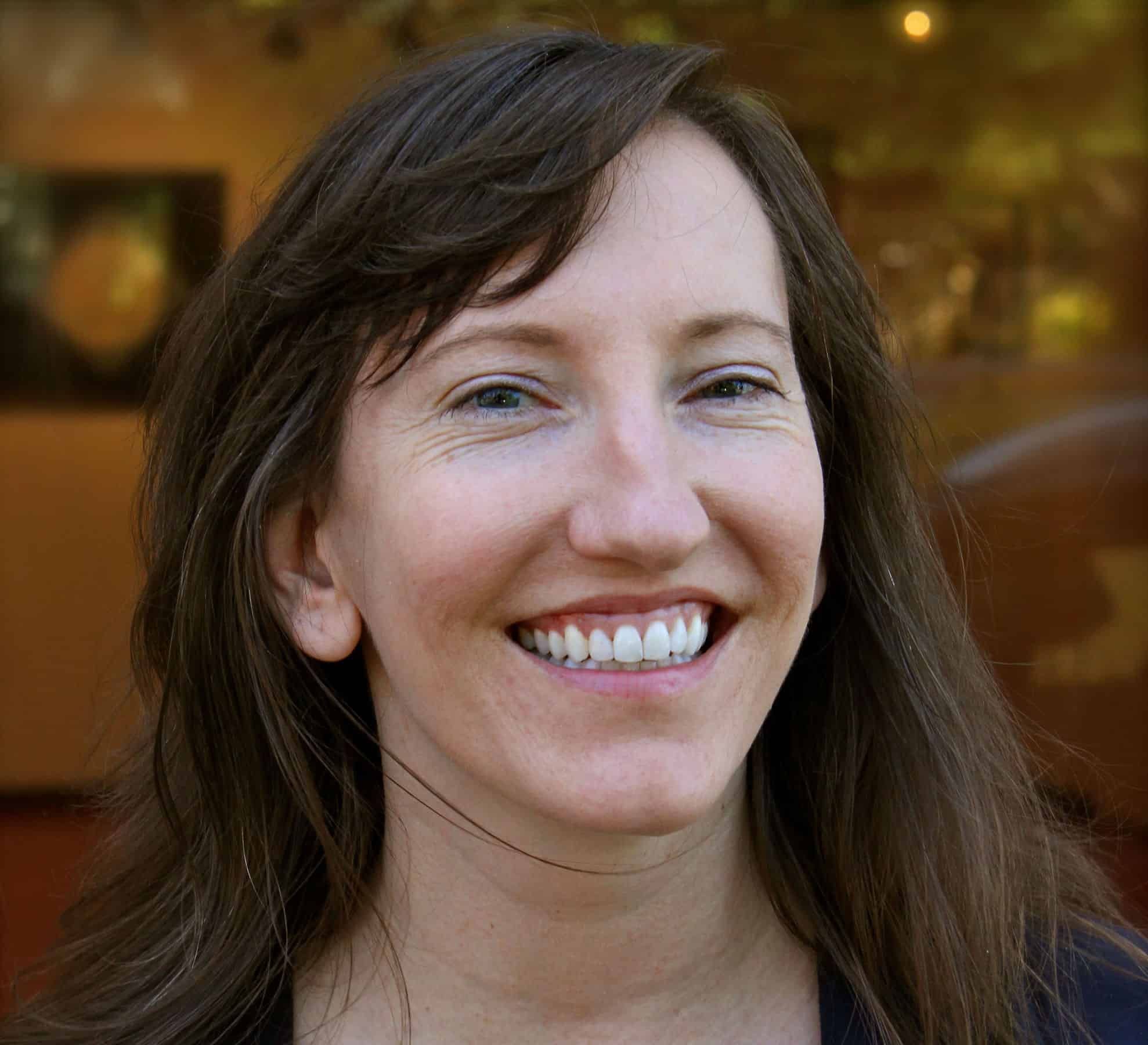
In January 2013, I set the goal of being debt free within 4 years. That was brazen because I still had $57,000 in student loan debt left. I was making $12 per hour and my contract was ending in a few months. How in the heck would I be debt free in four years? But something powerful happened when I set that intention. I set a goal — a BIG one — and even though I had no idea how I would actually reach that goal and even though it seemed so out of reach at the time, I made it happen. A year early.
Throughout the years, my blog has launched my freelance writing career as well as my event planning business. Because of it, I quit the job that I eventually found, and more than doubled my income, which helped me pay off my debt even faster.
I will also share that a small windfall helped me as well. I have never once thought or expected that I’d have a windfall of money. But earlier this year my mom received a sizable bonus at work — and decided to share a portion with me. It was $4,000, and along with a small amount from my emergency fund, I used it to pay off my last loan!
After all is said and done, I’ve probably paid close to $100,000 toward my student loan debt. I borrowed $81,000 and paid a lot in interest over the years. Sometimes I get sad, thinking how awesome it would be to have $100,000 in the bank, instead of having a net worth of basically zero. But I’m proud of what I’ve done. I’ve worked many long nights and shed a lot of tears to get here and it feels so damn good.
Learn more about Melanie's story at Dear Debt.

After graduating college in 2010, I noticed (yes, I didn't really pay attention) that I accumulated $30,000 in student debt. I can't explain how much of a burden this felt like. After a few tears and a glass (okay, okay a bottle) of wine, I put together a plan to pay off the debt.
My plan consisted of living on a very tight budget, renting out my primary residence and moving in with my boyfriend, selling all my furniture and knick knacks, and working two jobs pushing 70-80 hours a week.
One of the weirder things I did was taping my budget to my debit card. Every time I wanted to make a purchase, I was reminded of my bigger goal. Cheesy, but it worked. All my sacrifices allowed me to pay off my $30,000 in 10 months. I always try to remind people that while the process of getting out of debt is simple, it isn't easy. There's a lot of emotions and personal development involved. Getting out of debt is much more than just "running the numbers."Hope this helps in some way!
Learn more about Whitney's story at WhitneyHansen.com.

When my wife and I were married in 2005, each of us came into the marriage with $15,000 of credit debt, and a combined $37,000 of student loan debt.
Since we were in $30,000 of credit debt, and since it has the higher interest rates (and not tax deductible), we had to make that debt the priority, and figured we'd never get out of our student loan debt. That was until 2008, when I decided to give my all to my business. I decided I was tired of being in debt and needed to earn more income so we could pay it off.
And that's what I did. I hustled in my business. There was a few year period from 2009 to 2012 where I routinely would work late into the night, sometimes going to bed at 3 a.m. The point is, I was willing to do whatever it took to become more successful, and I started making a lot more money.
I'm happy to say that since that time, despite having 3 children and buying a house, we have now paid off all of our credit debt and have just $9,000 of student loan debt left. Yep, we paid off over $28,000 of student loan debt and $30,000 of credit card debt. I expect us to pay off the remainder of our debt in 2016.

I took out loans to fund two graduate degrees from the University of Louisville back in the 1990s. I ultimately graduated in 1999 with an MBA, a Master's degree in audiology, and a student loan balance of about $85,000. Because I was unable to make the payments on these multiple loans, I consolidated my student loans at a time when interest rates were high, so I was then locked into a 7.625% interest rate. Even after consolidation, I had difficulty making the $817 monthly payments on my salary at the time.
My lender offered deferments, which I gladly accepted even though all the interest was being added to my balance each month. By the time I began making regularly scheduled payments, the balance had grown to just over $100,000.
By then, my career was in full swing and I was able to make the payments, but the balance didn't shrink much. I began paying extra when possible. In 2014, my husband and I made the decision to pay off a portion ($30K) of the loans using a home equity loan that had a low variable interest rate. This allowed me to reduce the overall interest I was paying on the loans and it allowed us to be able to deduct the portion of the interest from the home equity loan on our taxes.
I continued paying on the loans until finally, in 2015 I made the difficult decision to cash out a pension I had from a previous employer to pay the remainder of the loans. The pension was being managed by the company and was earning almost no interest, far less in interest than I was paying on the remaining student loans. I also still had a robust 401(K) that I didn't touch. So, even with the taxes and penalties I incurred to liquidate the pension early, it still made sense to use it to pay off the loans once and for all.
I think what many people don't realize when they are younger is, that unless you are working towards a degree that is nearly guaranteed to earn a big salary, it almost never makes sense to mortgage your future to pay for an education. This is even more true today, with the diminished value of an undergraduate degree.
The entire system is rigged against the borrower and those who earn "too much", as I did, will not even be able to deduct any of that big student loan interest bill on their taxes. There is no hope of refinancing the loan again once you've already done so under today's current system and that's why I was locked into a high interest rate.
Although many financial experts would not advocate applying funds earmarked for retirement towards a student loan balance, my advisor encouraged me to do just that, not only for the financial reasons described above but also because this debt weighed so heavily on me psychologically. I felt like an indentured servant to the corporate world, never being able to choose jobs based on factors outside of a hefty salary that would enable me to stay current on my loans. Now that they are gone, I have more freedom in my professional life and can choose jobs that are fulfilling for me. I am even able to pursue my own businesses like freelance writing and blogging in the hopes that they will grow in the future.

The loan amount was $15,000. I don't remember what the monthly payment was, as I paid it off during the grace period.
The two biggest things that helped me pay the student loan back were my parents' support and having a second job.
I was able to live rent-free while I paid my loan off (although I did help with other bills), and my mother was kind enough to leave leftovers from supper when I came home. Just by staying with my parents, I saved $500-$600, and put that money towards the loan.
Managing two jobs wasn't easy, and at times one compromised the other. I worked from 8 AM to 4 PM in a marketing job, and then worked from 5 PM to 10 or 11 PM as a hostess/busser at a restaurant. I would usually eat my supper in my car between jobs, or take a nap. It wasn't unheard of for me to work 7 - 10 days in a row. Sometimes I would show up to my full time job sleepy from the previous night, or I would have to call in to the restaurant last-minute if my full-time job needed me to stay late for a project.
What kept me going was working with great people who supported my situation, and seeing my loan amount decrease over $1,000 a month. I was driven to pay it back as fast as possible, and the hard work paid off (no pun intended). I now live debt-free, which not many people can say at 24 years old these days.

My name is Melanie McComb and I just paid off my student loans last month.
I owed over $40,000, the cost of going to a 4 year state university. I have been paying off my student loans since 2007.
When I first started paying, I went after the highest interest loan and made aggressive payments on it and was able to pay it off within 2 years. I then tackled my other loans and continued the process of prioritizing the highest interest and where I had some additional money left over after bills/rent, I paid some of the difference towards my loans.
By using the debt snowball method on my student loans, she's now debt free.

Robert Farrington is America’s Millennial Money Expert® and America’s Student Loan Debt Expert™, and the founder of The College Investor, a personal finance site dedicated to helping millennials escape student loan debt to start investing and building wealth for the future. You can learn more about him on the About Page or on his personal site RobertFarrington.com.
He regularly writes about investing, student loan debt, and general personal finance topics geared toward anyone wanting to earn more, get out of debt, and start building wealth for the future.
He has been quoted in major publications, including the New York Times, Wall Street Journal, Washington Post, ABC, NBC, Today, and more. He is also a regular contributor to Forbes.
Editor: Clint Proctor Reviewed by: Colin Graves
